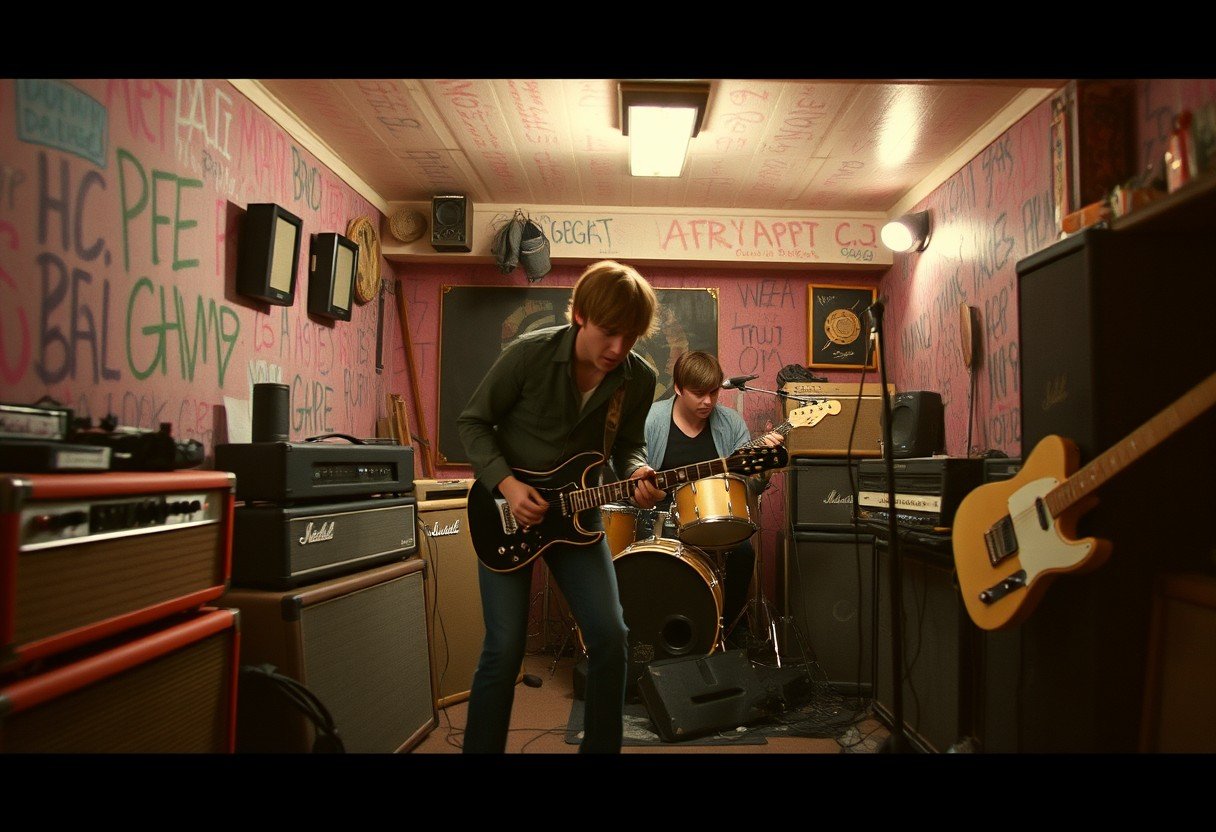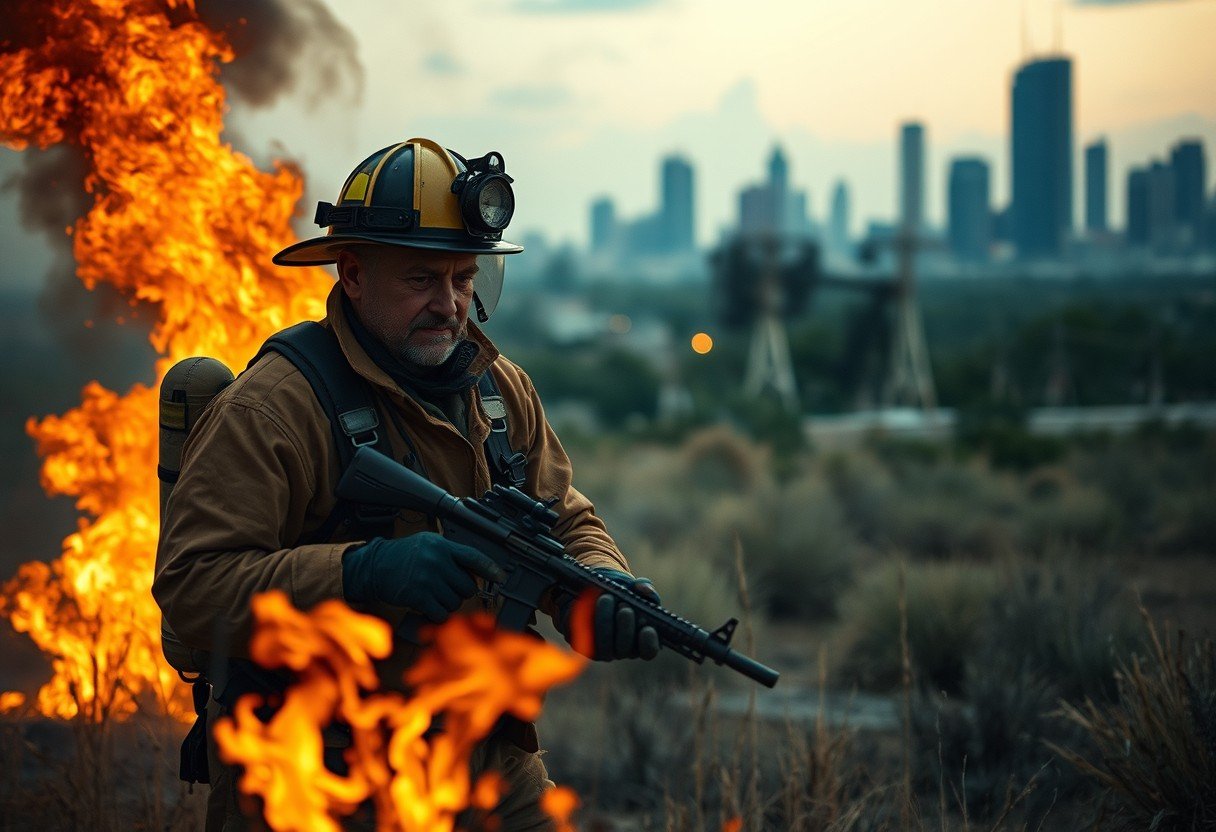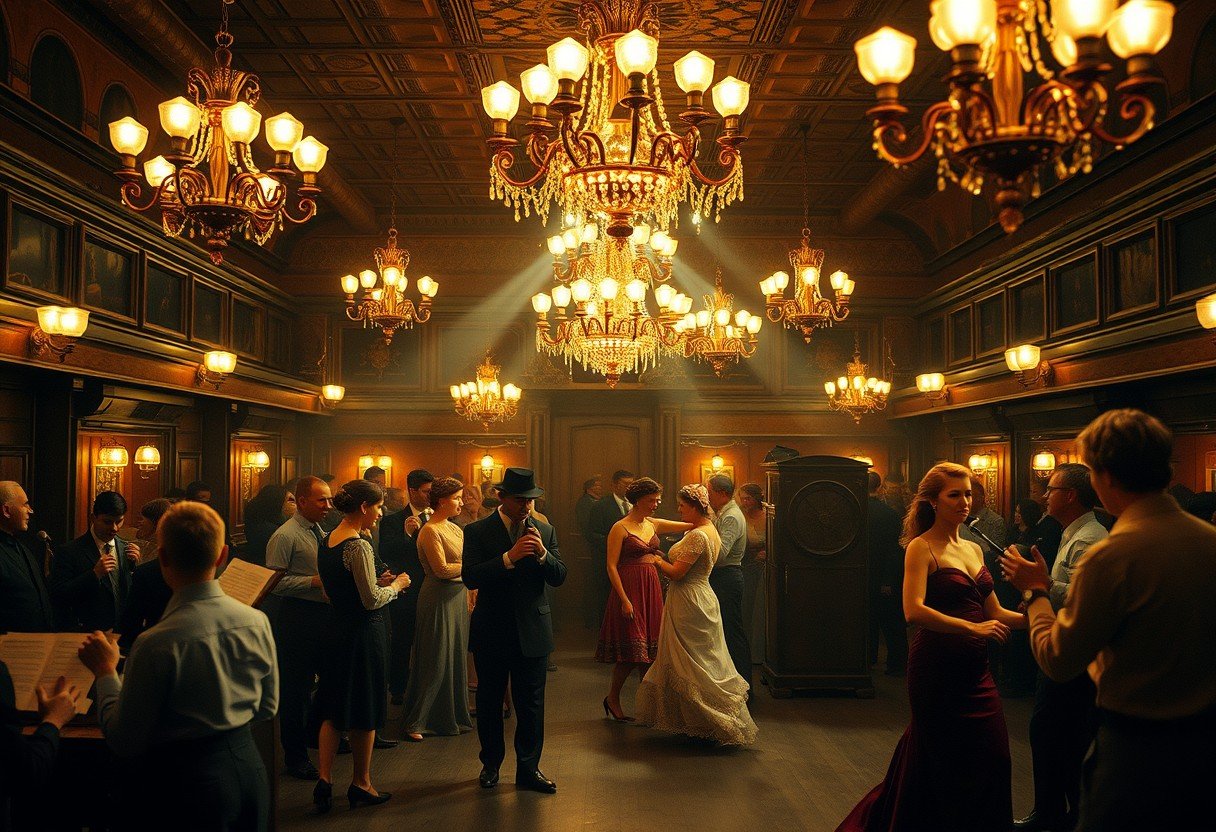Here is the short story behind the first national garage rock hit. In 1963, The Kingsmen from Portland turned a raw bar tune into a coast to coast sensation. The song was Louie Louie, and it spread through local radio, word of mouth, and teen dances. It rose fast because it was cheap to record, easy to play, and wild to hear. You will see how, who, when, where, and why this record changed rock history.
Origins Of Garage Rock And The DIY Sound
Garage rock grew in early 1960s America when teens formed bands in basements and garages. Cheap guitars, small amps, and simple chords made the sound loud and direct.
Local radio and teen clubs helped these groups get heard in their towns. The scene valued fun and nerve over polish or music school training.
The spirit was do it yourself, try it now, and learn by playing shows. The British Invasion pushed more kids to pick up guitars, but the local drive and grit stayed American at its core.
By mid decade, this do it yourself wave was a movement, with hundreds of singles pressed on small labels. The style was messy, fast, and full of energy.
The Song That Broke Through Nationally
Louie Louie became the first national garage rock hit because it captured that raw spirit. The Kingsmen cut it fast, with a ragged beat and a chant that stuck in your head.
- Simple three chord groove that any new band could learn in minutes
- Rough, live feel that made radios and dances jump
- Call and response shouts that pulled the crowd into the song
What sounded like a mistake became the magic that fans loved all over the country. The more stations spun it, the more kids formed bands to copy it.
Its reach grew from the Pacific Northwest to the Midwest, then the coasts. By winter of 1963, Louie Louie was on major charts and in school gym dances.
The hook was not fancy or clean. It was loud, loose, and easy to sing, which is why it spread fast.
Inside The Recording And The Controversy
The Kingsmen recorded Louie Louie in Portland in 1963 in a quick, low budget session. The singer, Jack Ely, leaned back from the mic and shouted over the band.
That made the words hard to hear, and rumors began to fly about hidden dirty lines. Some stations banned it, and an FBI review dragged on for 31 months.
The FBI report ended with no proof of obscene words because the tape was too muddy to decode. The song kept selling while the story kept it in the news.
Parents worried, teens laughed, and the song grew even more famous. The chaos around the lyrics only boosted the myth and the sales.
Chart Performance And Public Response
Louie Louie moved from a regional single to a national smash after a wider release. Wand Records helped push it to stores and radio across the country.
| Item | Detail |
|---|---|
| Release Year | 1963 |
| Billboard Hot 100 Peak | No. 2 |
| Time On National Charts | Over 10 weeks |
| Label For National Reach | Wand Records |
Despite bans and rumor, the public voted with their ears and their wallets. It became a staple at parties, pep rallies, and jukeboxes, and it never left classic rock playlists.
Critics later called it a cornerstone of the garage band era. The impact was felt in both sales and in how many bands formed after hearing it.
Lasting Influence On Bands And Genres
Louie Louie proved that raw feel could beat perfect skill. That message shaped later groups in the 1960s like The Sonics, The Seeds, and many one single wonders.
In the 1970s, punk took the same lesson and ran with it. The Stooges and The Ramones leaned on speed, noise, and short songs.
Grunge and indie rock kept the do it yourself idea alive with rough tones and honest takes. Bands like Nirvana and The White Stripes showed that simple riffs still move crowds.
Today, garage rock revival acts use tape hiss, live rooms, and shout along hooks. The DNA of Louie Louie is still easy to hear.
How To Start Exploring Classic And Modern Garage Rock
You can jump in with a few smart steps that make the history clear and the search fun. Start with the first national garage rock hit, then branch out.
- Play Louie Louie by The Kingsmen, then hear other takes by Paul Revere and the Raiders and The Sonics.
- Spin 1960s compilations like Nuggets and local scene sets from the Pacific Northwest and Michigan.
- Catch modern garage shows in small clubs and stream live sessions to feel the raw sound.
Reading liner notes and label histories will teach you the names, studios, and scenes that built the sound. Look for reissue labels that focus on teen bands and regional singles.
Make playlists that connect old tracks to new ones so you can hear the line from the 1960s to now. Share them to keep the scene growing.
FAQ
What Is The First Important Garage Band Hit On A National Level?
The first widely recognized national garage rock hit is Louie Louie by The Kingsmen from 1963. It reached high on the Billboard Hot 100 and spread the raw, do it yourself sound across the country.
Why Did Louie Louie Become A Garage Rock Anthem?
It uses a simple three chord pattern, a rough live feel, and a chant that crowds can shout. These traits made it easy for new bands to play and for fans to love.
Did The FBI Really Investigate The Lyrics To Louie Louie?
Yes, the FBI reviewed the song for 31 months and found no clear obscene words because the vocals were too hard to hear. The probe only added to the song’s fame.
How High Did Louie Louie Chart In The United States?
It peaked at No. 2 on the Billboard Hot 100 after gaining national distribution. It stayed on national charts for many weeks during late 1963 and early 1964.
Which Bands And Styles Did Louie Louie Influence?
It inspired 1960s garage groups, early punk acts like The Stooges, and later scenes such as grunge and indie rock. The song showed that energy and feel can beat polish.
How Can A Beginner Explore The History Of Garage Rock?
Start with Louie Louie, then listen to Nuggets and regional collections. Visit local shows, read liner notes, and follow reissue labels that document teen bands and small studios.







Leave a Comment